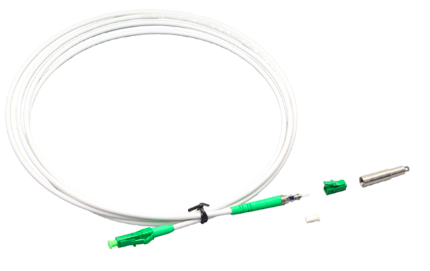Table of Contents
Choosing the right soy sauce wholesaler is essential for foodservice providers, manufacturers, and distributors seeking reliability, safety, and quality at scale. Soy sauce isn’t just a flavor enhancer—it’s a key component in defining product identity, and an inconsistent supply can disrupt production lines or compromise taste expectations. This guide offers a practical framework for selecting the best wholesale supplier for your business needs.
1. Soy Sauce Wholesaler Product Diversity and Fit
A reliable soy sauce wholesaler should offer a wide spectrum of options to serve different industrial and culinary uses. Businesses today work with specific requirements related to nutrition, processing format, and consumer trends.
Common product variants include:
- Light soy sauce: Typically used in stir-fried dishes and broth bases.
- Dark soy sauce: Thicker and less salty, often applied for its color and caramel depth.
- Gluten-free or low-sodium alternatives: Designed to meet health-focused or allergen-sensitive market demands.
- Dry-blended soy extract formulations: These are well-suited for shelf-stable seasoning packets and ready-meal kits, offering extended storage with easy rehydration during processing.
Matching your product application with the correct soy sauce variant ensures flavor consistency, regulatory compliance, and efficient kitchen or factory operations.
2. Soy Sauce Wholesaler Quality and Safety Standards
Consistency and food safety are foundational for any supply partnership. A dependable soy sauce wholesaler must have documented quality assurance practices and food-grade facility standards.
Key elements to consider include:
- Global certifications: Such as ISO 22000, BRCGS, or HACCP—these indicate systematic food safety management.
- Ingredient sourcing transparency: Suppliers should disclose origin of soybeans, brewing methods, and additive usage.
- Digital production records: Look for systems that monitor manufacturing checkpoints and packaging conditions to reduce defect rates or contamination risk.
- Flavor profiling: Ask whether the wholesaler uses sensory evaluation or chemical analysis to maintain taste consistency across batches.
Trustworthy suppliers are those that share their processes openly and offer third-party testing documentation where necessary.
3. Soy Sauce Wholesaler Logistics and Packaging Flexibility
 When purchasing at scale, your soy sauce wholesaler must offer packaging and shipping options compatible with your operational model.
When purchasing at scale, your soy sauce wholesaler must offer packaging and shipping options compatible with your operational model.
Important considerations:
- Bulk containers: Industrial kitchens may prefer pails or drums, while food processors might need intermediate containers or aseptic packs.
- Custom volume fills: Look for suppliers offering adjustable quantities per container to match recipe dosing or co-packing needs.
- Stable shelf conditions: Ask whether the product retains its quality at ambient storage without refrigeration—especially relevant for long-haul shipments or warehouse storage.
- Export readiness: A competent wholesaler understands customs documentation, labeling compliance, and international shipping constraints.
Logistical agility ensures your business doesn’t face bottlenecks during high-demand seasons or expansion.
4. Soy Sauce Wholesaler Regulatory Compliance and Labeling
Labeling accuracy is crucial, especially when serving markets with strict food laws. Your soy sauce wholesaler should be familiar with global labeling standards and provide complete documentation with every shipment.
What to check for:
- Clear allergen labeling: Including soy, wheat/gluten, or any fermented components that may cause cross-reactivity.
- Regulatory language formats: Labels should be compliant with destination countries’ regulations (e.g., bilingual packaging in Canada or EU allergen codes).
- Traceable identification codes: Each unit should carry identifiers linking it to its manufacturing lot, allowing for real-time inventory logging and quality assurance tracking.
Proper documentation reduces risks associated with regulatory noncompliance or product recalls.
5. Building Strong Partnerships with a Soy Sauce Wholesaler
A transactional relationship may work short-term, but businesses benefit far more from developing partnerships with their soy sauce wholesaler. A collaborative approach ensures long-term consistency and better negotiation power.
Ways to strengthen this relationship:
- Forecast-based planning: Sharing purchase estimates can help the wholesaler manage raw materials and reserve production slots for your orders.
- Customized flavor solutions: Some suppliers offer R&D support to adjust salinity, fermentation level, or viscosity based on your product vision.
- Consistent pricing agreements: Fixed-period contracts protect you against sudden price volatility in raw materials.
Joint quality audits: These build mutual accountability and reduce supplier-side surprises.
Reliable partners are those willing to grow with your business while maintaining transparency and quality.
Conclusion
Working with the right soy sauce wholesaler brings operational efficiency, product consistency, and regulatory peace of mind. From flavor formulation to packaging format and quality control, each step in the process affects how your final product is perceived in the market.
Rather than just comparing prices, evaluate suppliers on their ability to align with your business model, product requirements, and long-term goals. In a global market where traceability, health claims, and customer expectations are tightening, having a trusted wholesale partner is more valuable than ever.












